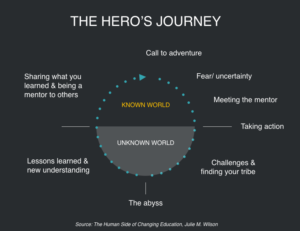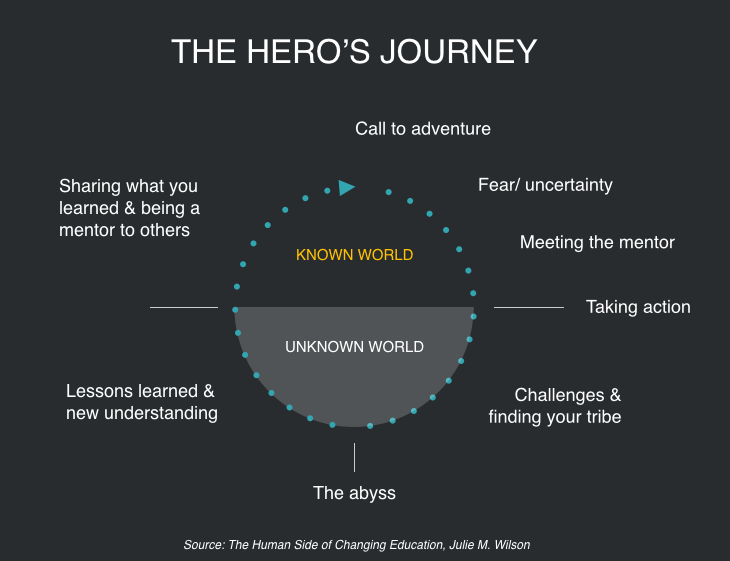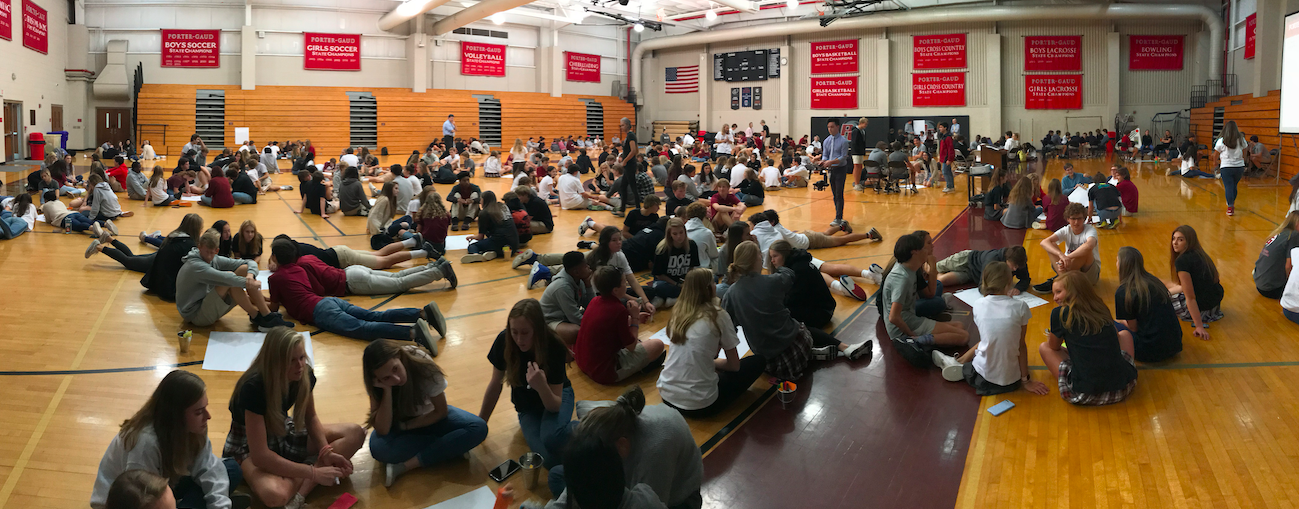The Hero’s Journey lies at the heart of human storytelling. From the Bhagavad Gita to the Old and New Testaments; from Greek, Roman, and Norse mythology to the creational stories of indigenous peoples; from the life stories of comic book superheroes to the modern sagas like Star Wars and Game of Thrones, the Hero’s Journey is the common thread. It is such a part of who we are as humans that we recognize the stages in our own lives, including how we engage in change as educators.
 I raised the issue of the Hero’s Journey last week with a group of 13 educators who are seeking to change their practices to create deeper learning experiences for and with their students. (Thanks to Julie Wilson for letting me use her slide!) In response, several of the teachers raised what I think are profound questions about what has been, seemingly, a timeless tool:
I raised the issue of the Hero’s Journey last week with a group of 13 educators who are seeking to change their practices to create deeper learning experiences for and with their students. (Thanks to Julie Wilson for letting me use her slide!) In response, several of the teachers raised what I think are profound questions about what has been, seemingly, a timeless tool:
- Do young people today have the same kind of heroes as past generations? Have their heroes gone through this journey, or are they heroes merely because they have powerful publicists and intersect young people across social media? One could make the argument that almost every human being goes through some form of the Hero’s Journey during their lifetime, but is this journey the reason they are heroes? Have they earned that title in the same way that past heroes have?
- Has the compression of time and the rapidity of events changed our relationship to heroes? Young people (and many of us older folks as well) are bombarded so quickly with so many inputs. Professional athletes shift teams; entertainers have short lives in the spot light; there are dozens of super heroes on the silver screen where once there were just a handful. Do kids today have a chance to build a relationship with heroes before they are replaced by someone else?
- And should we, as educators, replace the word “Hero” with “Learner”? Isn’t this classical journey the one in which we want our students to engage? The power of the Hero’s Journey has always been that we find ourselves in it, so should be not bring it closer to the level of each of us, students and teachers, as Learners?
The answers to these questions will fall to the historians and social scientists, but it is this kind of thinking, the challenges we throw at accepted doctrine, that are the hallmarks of a growth mindset. Keep it up; don’t accept that the past is the perfect guide to the future, because it is becoming less so all the time.















Leave A Comment